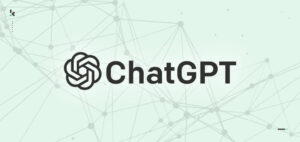With new artificial intelligence (“AI”) programs seemingly appearing each day, many professional have become eager to utilize them to make their work more efficient. In the legal industry, these programs have raised numerous questions and concerns regarding the strict ethical and professional obligations that govern the practice. In particular, critics have raised concerns regarding the utility and reliability of these programs to draft labor-intensive briefs. As a result of these concerns, the Florida Bar Association’s (“FLBA”) Ethics Counsel recently provided guidance on what lawyers should consider when using AI and what ethical and professional obligations they may implicate.
First, the FLBA reminded lawyers that they’re responsible for their conduct and the content that they produce. Under Rule 4-5.2 of the Rules Regulating the Florida Bar, every lawyer is bound by the Rules of Professional Conduct even when acting under another lawyer’s direction. The FLBA provided that this Rule applies to work produced using AI. This means that work product produced with AI are subject to the Rules of Professional Conduct and that the lawyer is ultimately responsible for ensuring compliance.
Another concern regarding AI in the legal field is its potential to misstate or outright create facts. Under Rule 4-3.3, lawyers are prohibited from making a false statement of fact or law to a tribunal or third party. Factual misstatements submitted to courts or opposing parties can have serious consequences, including disbarment. Therefore, the FLBA advises attorneys to familiarize themselves with the facts of a case and educate themselves on the applicable law rather than rely on anything factual produced by AI.
The use of AI has also resulted in concerns regarding attorney-client privilege and the confidentiality of client information. AI programs typically rely on user input to generate their responses, raising questions regarding the storage and security of inputted information. While lawyers have the discretion to disclose client information during representation, they are still privileged absent the client’s permission or special circumstances. Due to the relatively limited use of AI and the variety of programs available, it’s currently unclear whether inputting privileged information into an AI program waives claims of attorney-client privilege. As a result, the FLBA recommends that lawyers carefully consider the information they provide to these programs and thoroughly explain their use to clients.
 Similarly, many lawyers and law firms already use automated chat services to greet and interact with potential clients on their websites. These systems tend to be less advanced than AI programs like ChatGPT that have recently been making the news. Still, they do have the potential to establish an attorney-client relationship along with the ethical and professional obligation that entails. An attorney-client relationship exists when a potential client can reasonably assume that they are receiving the protections and benefits from an attorney they are consulting with. Understandably, AI chatbots would make it difficult to determine when exactly an attorney-client relationship is created since potential clients may assume they’re directly consulting with a lawyer when they are instead consulting with AI. As a result, it’s essential for lawyers and firms that use chatbots to clearly indicate who the potential client is speaking with and establish strict parameters for their responses to avoid inadvertently establishing an attorney-client relationship.
Similarly, many lawyers and law firms already use automated chat services to greet and interact with potential clients on their websites. These systems tend to be less advanced than AI programs like ChatGPT that have recently been making the news. Still, they do have the potential to establish an attorney-client relationship along with the ethical and professional obligation that entails. An attorney-client relationship exists when a potential client can reasonably assume that they are receiving the protections and benefits from an attorney they are consulting with. Understandably, AI chatbots would make it difficult to determine when exactly an attorney-client relationship is created since potential clients may assume they’re directly consulting with a lawyer when they are instead consulting with AI. As a result, it’s essential for lawyers and firms that use chatbots to clearly indicate who the potential client is speaking with and establish strict parameters for their responses to avoid inadvertently establishing an attorney-client relationship.
While the U.S. Patent & Trademark Office and U.S. Copyright Office have declined to grant AI programs patents and copyright registrations, their use still raises questions regarding plagiarism and their use of sources. While concerns regarding AI and plagiarism mainly relate to AI-generated artwork that borrows influences from existing works without crediting their creators, attorneys have been sanctioned for plagiarism in the past, so their use may result in similar claims in the future.
The increasingly widespread use of AI has raised many questions for legal professionals concerning their ethical and professional obligations. As these systems become more intelligent and easy-to-use, they can potentially reform the practice of law. Despite this potential, the FLBA advises lawyers to continue approaching the AI systems with caution and skepticism. It reminds them they’re still subject to the same ethical obligations that govern their typical work and that those obligations may be harder to meet with AI.


